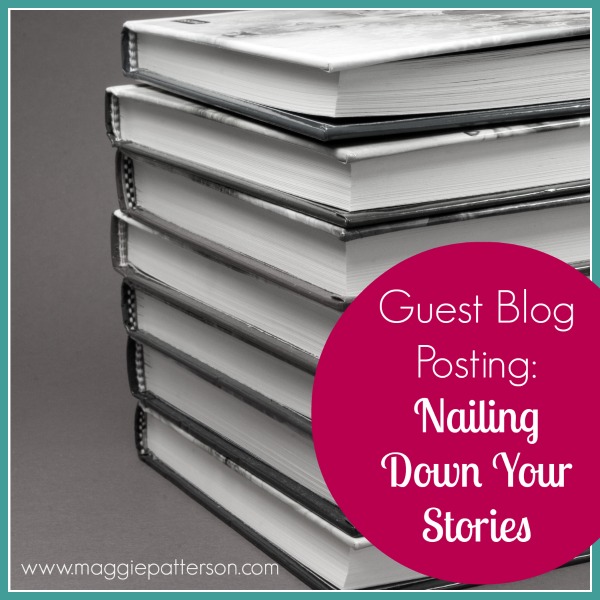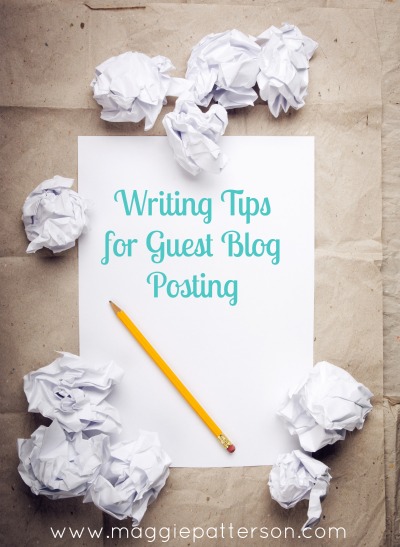 There are probably a million and one reasons why you should be guest blog posting, many of which we had a heart to heart about in this post.
There are probably a million and one reasons why you should be guest blog posting, many of which we had a heart to heart about in this post.
I’m willing to bet there’s a billion more reasons why you’ve not already started. I totally get it. Many of them are legit like what on earth would I pitch? How do I pitch so I don’t become the object of a nasty tweet or even worse, blog post railing against bad pitching?
Totally legit. You want to go pro, so let’s lay some groundwork so you can get going already.
Start at the beginning – before you can pitch, before you can write a post, you need a story. And not just one your mama wants to read.
It needs to connect with real trends, issues, fears, while not being the same old, same old.
Your story doesn’t need to be revolutionary. But it does need to offer something unique.
That’s why you actually need to do a bit of planning now before you get into the weeds of pitching and posting.
Pulling Your Story Together with Grace and Style
When it comes to PR in general, this is where a freak out is most apt to occur. It’s totally natural and entirely expected.
Storytelling is a process. That’s why corporations spend thousands and sometimes millions of dollars on things like strategic corporate messaging and brand strategy. These are some fancy terms for learning how to create and tell stories.
Stories are what people engage with and attach to. Powerful, powerful, stuff, which is why you can’t skip this step.
But let’s get back to reality where you aren’t spending a cool million to hammer out your story. Back here in reality, let’s work through what may have you close to the edge. (I have Grandmaster Flash rolling through my head at this moment. I wonder if I can use a funk/disco reference every blog post.)
Here’s the three most common freak outs along with some practicalities so you can tell a kickin’ story with grace and style:
Freak Out #1: I Have No Story
If this is your deal, we need to talk. Take a deep breath.
Go back to the beginning.
Questions to Ask: Why did you start your business? What do you do? Who do you serve?
Work through those points and you’ll start to see your story taking shape. This should not be the whole story, but gives you some clues as to where you should be heading. Read on for more on how to build from there.
Freak Out #2: What Do You Mean It’s Not New or Unique?
Know you aren’t alone, because this is probably one of the most common ones when it comes to storytelling. As an entrepreneur, we live in a bubble where we live, breathe and literally eat our own brand and value.
The result is the possibility of being so far up our own, ahem, derrieres, that we don’t really know what is going on around us. We don’t realize that our most common stories are O.V.E.R.
As you map out your story, do some homework to make sure your big idea hasn’t already been done to death or so two years ago. Google it and then Google it some more.
Does every story you tell need to be 100% new? Definitely not, but it should be unique in some way.
Questions to Ask: What’s your unique take on this? What makes this different? What do you do better than anyone else? And what do your customers tell you?
Freak Out #3: I Have Story Overload
This may seem like a “good” problem to have, but this is a challenge as when you have too many stories it can be a clear signl that your business or ideal customer is too broad. The key for story development for your guest posting is to have laser-like focus.
Questions to Ask: What specific niche or even sub niche do I focus on? What specific types of people are my ideal customer? Who are my clients today and what type of media do they consume? What ideas resonate with them?
Your goal here is to pick two or three specific areas to focus on or types of ideal customers.
Take the rest of your ideas and park the other ideas in the “later” category. That will give you freedom to get super clear on what stories will be impactful and timely for your customers.
Preparing to Tell Your Story
Storytelling may not come naturally to you, but know that the stronger your brand and clarity around what you do, things will be so much easier. At the end of this you should have some broad story angles along with some audiences determined. Write them out. Save them so you have them ready for when you start writing pitches.
Trust me, you want to nail this piece down so that you are able to figure out your next step…where should I guest post? The pain of nailing this all down now will help you save time later and make you into a star that much faster.






